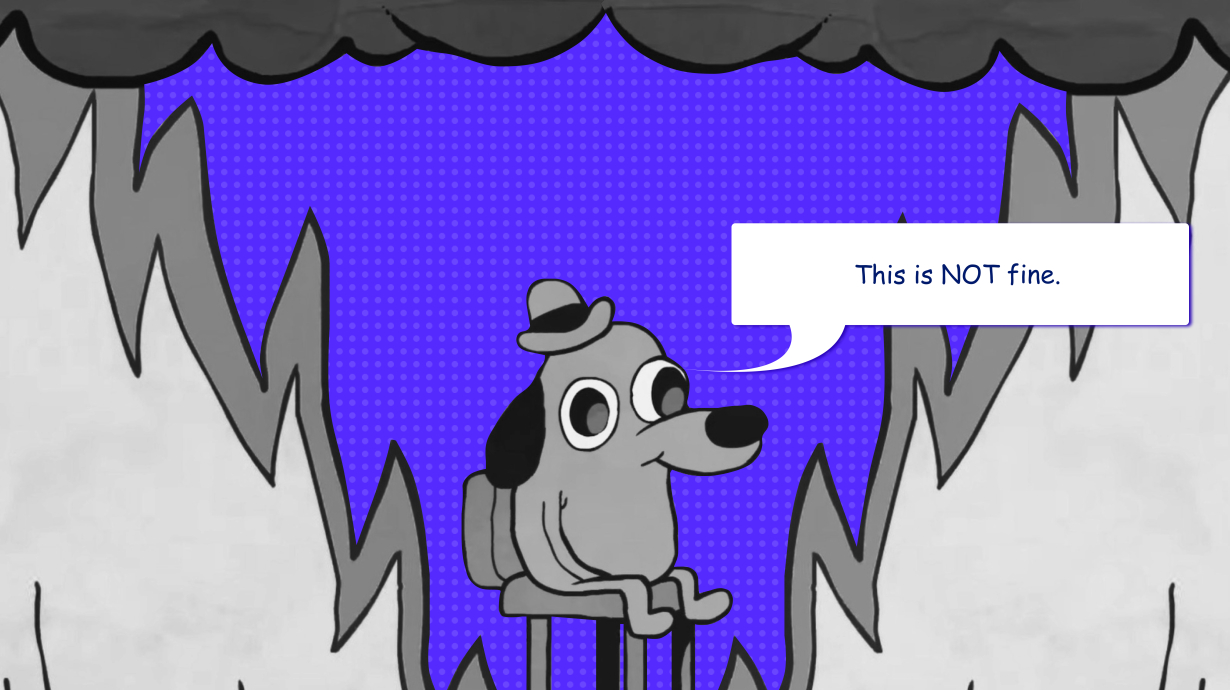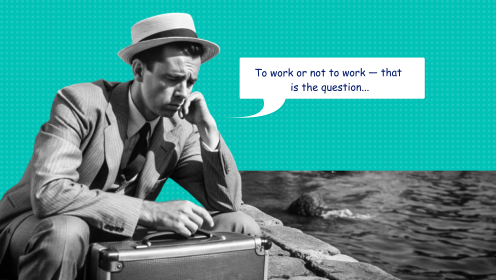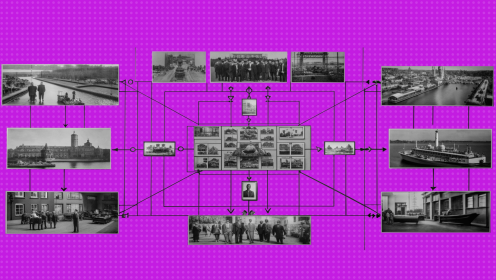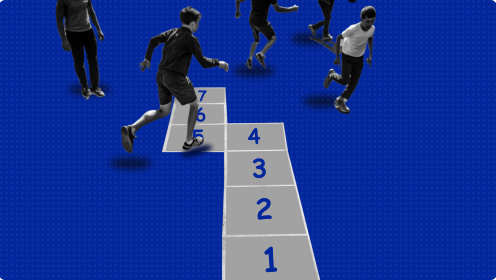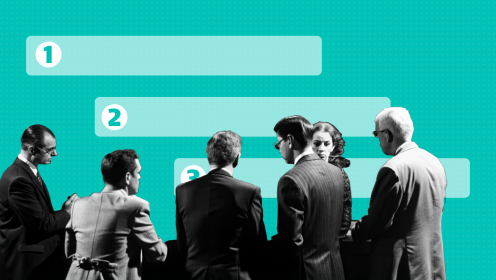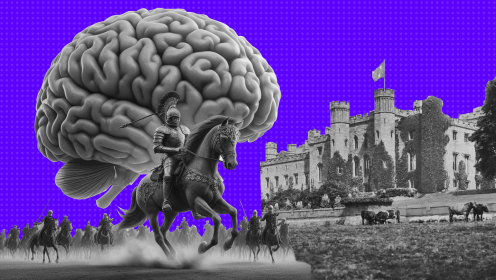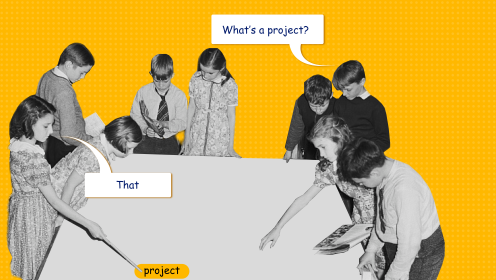So what is emotional burnout? This is when you work in such a way that you have a full emotional and physical exhaustion of all your resources.
Here is an example of a burnout leading to serious physical problems. Athletes who are on doping, weightlifters, for example, don't feel this the objective frontier of possibilities that much, so they can lift the barbell and break the bones due to excessively strong muscle tension. The same thing happens with mental health, when you burnout.
How does burnout work?
Burnout occurs due to workaholism. Which leads, in turn, to increased workload and constant stress.
Humans as a species have a protective response to threats. Unexpected stress stimulates the release of hormones that help you survive. Let's imagine, that angry dog is running at you with bad intentions. That is how it works:
- 1. adrenaline is produced immediately to make you feel fear.
- 2. norepinephrine is produced to make you instantly mobilized and furious. You are ready to run or fight.
- 3. cortisol is released last when the "acute phase" of stress is over. Its task is to keep the body in a state of heightened caution. For example, bypass all dogs per kilometer. As long as there is a lot of cortisol in your blood, you will not feel safe.

The above is an example of how hormones work as they have worked for millennia and saved lives. In the modern world, due to the acceleration of the pace of life and the absorbing information field, a person is in constant stress. In this case, he does not produce the first two hormones, but the third is produced - cortisol. The brain does not see the obvious source of stress, but it feels a threat. Begins to produce a lot of cortisol constantly, trying to get us to escape from invisible stress. Which causes a number of side effects (we list them below in Stages of burning out). Consequently you constantly feel uncomfortable due to increased anxiety and generally do not understand what is happening with your life, although from the outside everything can look normal.
Why does burnout happen?
What factors most contribute to the onset of emotional burnout?
1. High degree of responsibility
When you are not a line employee, but a decision maker. You have a lot of creativity and responsibility for deciding how to develop things.
2. Uncertainty in long term plans
When it is not known when your work will end. You always think that tomorrow you'll have a rest, but tomorrow never comes.
3. No ability to influence
- When you are a line performer and can't affect someone's decision.
- When you work as a professional in a poorly explored sphere and need to make risky decisions. (Such as psychotherapy.)
4. Extreme self-devotion
If you give much more than you get. It can be money or public acceptance, no matter.
5. Excess communication
- When you work as a consultant, for example, you communicate a lot and you are depleted due to this.
- When you are very responsible for other people and cannot just stop and leave.
6. Ultimate performance
Sometimes the stakes are very high.You cannot afford to lose , and all the time you only want victory. It's characteristic for the athletes in the competition.
7. Pretending
It is when you have to, during your work, pretend to be someone who you really are not. If you are by nature not a very kind person who is keen on helping people, but as a concierge in a hotel you have to smile, and do any task for your guest.
Who is prone to burnout?
The next paragraph is about whom emotional burnout can develop. Here are personality portraits of workaholics, whose dependence on work arises during life and those people who had a disturbed form in childhood mechanism of behaviour regulation. I mean in childhood when this mechanism breaks people no longer feel any limits and workaholism becomes very destructive for them.
Five personality portraits of workaholics:
1. early grown up child, who was forced to educate his younger siblings, help with the housework or even earn money. Kind of Cinderella type upbringing.
2. rest is simply prohibited by somebody our yourself, no matter
3. a child is forced by parents to be an excellent student or sportsman.
4. a person is generally a perfectionist , he is not satisfied when work turns out well. He is a self-development maniac.
5. a person is so madly gifted in his field , when he is a real talente. Everyone sees this, recognizes it and they tell him: come on, fight, never stop. This person understands that he is really objectively the best , outstanding and very talented and when his self-assessment of his identity , his sense of life is very, it is tied to his work and level of productivity.
Stages of burnout
Emotional burnout has four main stages, each of which is so different from each other.
1. Courage, enthusiasm, huge fuse etc.
Its when you:
- are so absorbed in the work
- think about the work all the time
- stay out of business hours
- spend time at work on Saturday-Sunday
- prefer anything to work
This is kinda a useful addiction. When you work all the time and just feel yourself productive - it is an illusion, because at that moment you lose your boundaries and all you can see is only for a short term, and what is actually happening in your life is already starting to imbalance. Because work is only one of many important areas of life and already at this first stage of burnout you start to lose sight of such aspects of your life, like friendship, hobbie etc. For example, you work instead of meeting your friends, your relationship with your loved ones deteriorates. You justify it all with what you need to earn money, you have goals, you have deadlines, and this is all due to the fact that you attach excessive importance to work .
2. Tiredness
The terms are individual, but sooner or later the first stage, this illusory expectation of success, self-esteem are replaced by the second stage.
In essence when you were at this first stage you already started experiencing acute stress which gradually turned into chronic stress.
Which physical signs can be observed in the second stage of burnout ?
- tooth sensitivity
- acne, not only on the face
- hair loss
- worsening of all kinds of diseases associated with the mucus because the mucous membranes of our body are the most reactive. it can be herpes, stomatitis gastric erosion.
- all sorts of skin diseases
- the feeling of exhaustion, insomnia, anxiety.
- irritability and increased sensitivity
- weight problems
- weakening of immunity
- digestive disorders
- irritability, aggressiveness
3. Reversible exhaustion
Third stage is already devastation, but still it is a reversible exhaustion. Those people who are prone to depression, go depressed. In case a person does not understand his work addiction, tiredness does not stop him, then the body already starts to dictate its own rules.
When people are at this stage going to the doctors, they can’t connect all these problems with the work. They don't link them to the emotional burnout and they begin to treat it separately. When 50 people go to work , 48 of them don't get sick, but two are ill , and these two will be exactly those two people who have already overstrained and already overworked. One more indicator of this 3 stage burnout is that all your work performances already fall very hard and you lose your working capacity. The quality of your work is deteriorating , you become a jaded horse which is about to fall down.
4. Irreversible exhaustion
The 4th stage of emotional burnout is already almost irreversible exhaustion. It makes you:
- lose the meaning of your work
- start hating it
- start to feel it as harmful
- professional deformation happens.
The biggest tragedy of all these stages is that people who burn out perceive it just as a set of some totally disparate, unrelated, physical and mental symptoms. They are looking for reasons in completely different places. But the most important thing is that curing each of these stages is possible only with understanding the essence of what is happening.
How to avoid burnout
So it's very important for you to determine the stage to get better help.
1. A person who is in the first stage of emotional burnout, never in life will not get treated. Just like any addict who denies having an addiction as an alcoholic or a drug addict , who deny that they are alcoholics and narcomans , because they haven't yet been able to realize the full extent of the harm that their irrational handling of their own resources has an impact on their lives). The treatment of emotional burnout in the first stage is to change your beliefs about work:
- You should understand that you'll lose many times more if you dont stop working with the last bit of strength.
- Remember about other spheres of life. Because when you're in the first stage you've got a strong skew toward the job but you totally forget about health , about leisure, hobbies, spirituality, self-development, friends and family. So you need the whole mode of your upcoming week organized. I mean don't ignore your useful habits that you have in life and make sure that all areas of your life were originally harmonized.
2. When you are already in the second phase of burnout - the most important treatment is rest. Firstly, rest is when a person doesn't do anything. It's important to mention that rest isn't when you stopped working and instead you go to training or read a book, or devote that time to any other self-development. That is not real rest when you are trying to shove all the other spheres into a time period when you need to recover resources. You think as an excellent student who wants to push till maximal score all activities.
How to rest in the right way?
Rest has several cycles.
1. First of all, you have to rest every day. You have to learn to define your fatigue because you get into the second stage of emotional burnout. You keep working after you get tired , you don't know how to feel this fatigue on a physical level. You don't know how to feel tired on an emotional and mental level. So , rest every day.
2. Then you have to rest again once a week. Once a week it is necessary to rest, on weekends for example . And the most important thing is to rest not only physically, but also in an informational sense. Be sure to put yourself in the habit if you work with customers , you have to respond to all sorts of orders, the most important thing you need to do is to put yourself into the mode , for example answering phone calls and messages from nine in the morning till seven in the night. Also in the afternoon to make an hour of this informational pause. And on the weekend you have exactly free days .Every Saturday and Sunday or well at least 1 day a week you should have dedicated only to the rest.
3. Next cycle it's when once in a month you have to rest, preferably also a few days.
4. And the most important thing is of course seasonal and annual cycles, that is, in a year you have to gather a month of rest. And you can do it differently , it may be a week in summer, a week in autumn, a week in winter, a week in spring or it may be two weeks in autumn and in spring. As you want in short. Either it could be a whole month to have a deep, intense rest.
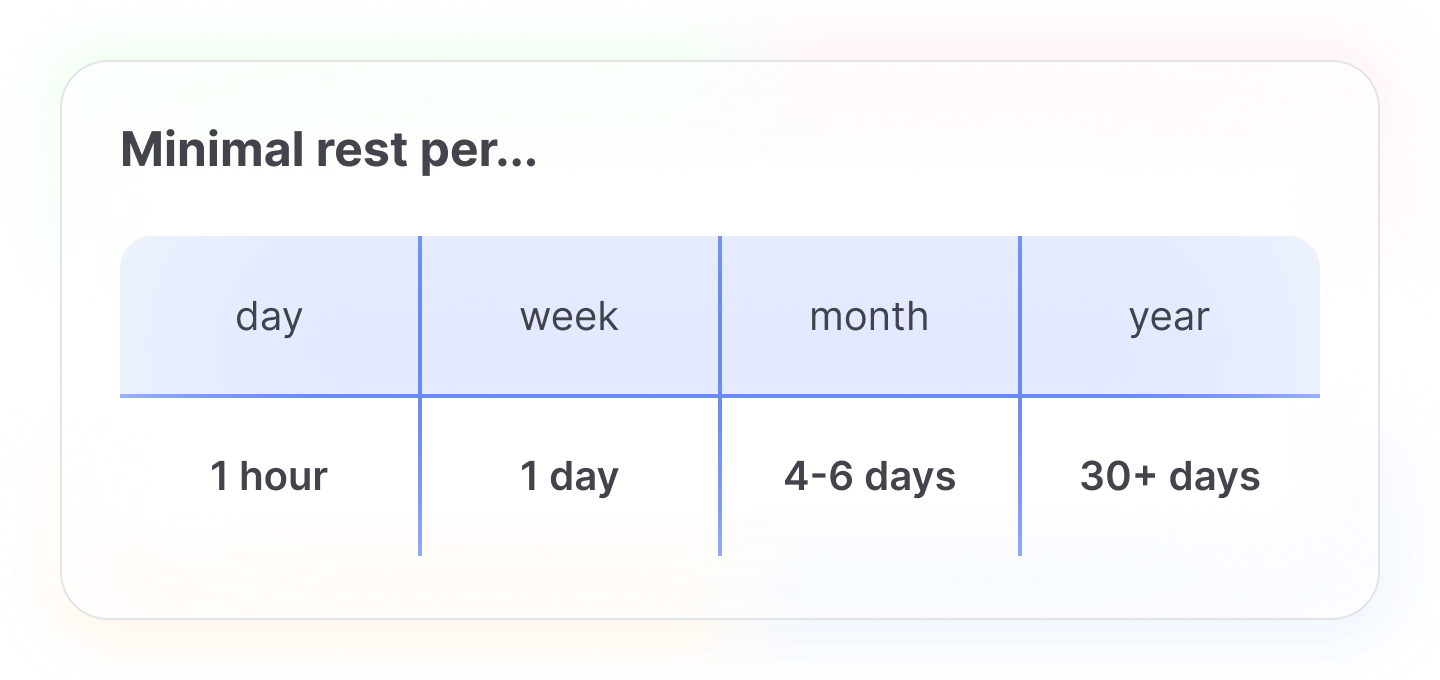
3. If you're already got to the third stage of emotional burnout, then no rest will help you, no harmonization of spheres will help you.
In the third stage of burnout, only sabbatical can help you. Sabbatical is a long vacation,with no certain duration. During which you have to fully recover and it lasts between three and six months. If a person got to the third stage of emotional burnout it is very difficult for him to go to a Sabbatical because he thinks he already hates his job on the one hand, but on the other hand, he became a slave of his work, sense of guilt for whom he feels responsible, prevents him from fully devoting his time to his recovering .
During sabbatical you will be able to continue your delayed evolutionary development and grow the integrity of your personality and harmonize it to such an extent that once you get out of this sabbatical you can apply a truly creative approach. If you really think you're talented and you really think you can change the world, why are you working just like immortal. Doing sabbatical is very important also because the treatment of the fourth stage of emotional burnout is only one it's changing the job, change of profession. If you love your job and if you don't want to lose it, then you better do sabbatical while you are still in the third stage.
4. But if you're in the fourth stage of emotional burnout, then most likely nothing will help you and you have no choice but to change profession. Because here the burnout reaches such an extent that you are already a scorched earth on which nothing will grow. The stakes are so high that you don't have to think about keeping your job , but to think about saving your life. But you just don't have another choice. Because your performance at this stage has already decreased , and your employers very badly want you to rest, because they don't want to lose such valuable employees, and for them will be much more profitable if you just spend some time for example a month, two, three on recovery and then you come back and be able to work with the same degree of efficiency as you did before , than you just die out, and the only thing you have to do is quit or you will hate so much that work , that you'll want to leave it forever. So explore the internet about sabbatical.
Conclusion
Back to medicine, now workaholism is not in the registry of mental illness , in ICD 10 (International Classification of Diseases), it's not in the register of diseases at all. It's outrageous, alcoholism and drug addiction are illnesses, but there is no workaholism because workaholism is now a socially and culturally approved phenomenon. I'm not a professor of psychotherapy, but it's unreasonably excluded from the list of diseases.
In conclusion I would like to mention, there's never going to be a magical moment where you have attained enough success that you will just let yourself slow down. That doesn't exist. You should understand that with slower progress because in exchange, you'll get a better work life balance. you'll have less chronic stress and have time to pursue things that are really interesting.








